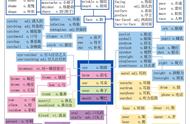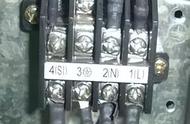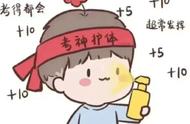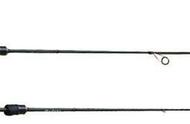必备短语
1. watch TV 看电视
2. read a newspaper 看报纸
3. talk on the phone 通过电话交谈
4. listen to a CD 听CD
5. Use the computer 使用电脑
6. make soup 做汤
7. wash the dishes 清洗餐具
8. tomorrow evening 明天晚上
9. make dinner 做晚饭
10. eat out 出去吃饭
11. go to the movies 看电影
12. drink tea 喝茶
13. in a pool 在(游泳)池里
14. in the United States 在美国
15. Dragon Boat Festival 端午节
16. make zongzi 包粽子
17. host family 寄宿家庭
18. any other night 其他任何一个晚上
19. living room 客厅
20. watch the boat races on TV 看电视上的龙舟比赛
21. no place like home 没有像家一样的地方
重点句子
1. What does he look like? 他长什么样?
2. Yeah, but I may be a little late.对,但是我可能晚一点。
3. Just meet him in front of the cinema first.
先在电影院前面与他见面吧。
4. He has brown hair and wears glasses.
他留着棕色头发,戴着眼镜。
5.Is he tall or short?他个子高还是矮?
6.He isn't tall or short. He's of medium height.他不高不矮,中等个子。
7. He has short curly brown hair.他留着棕色的短卷发。
8. They tell him what the criminal looks like.他们告诉他罪犯的长相。
9. Then Joe draws a picture of the criminal, and the police put it in newspapers and on television to find him.
然后,乔画出罪犯的肖像,警察把它放在报纸上和电视上寻找此人。
10. Many people don't always see things the same way so they may describe the same person differently.
人们并非总是以同样的方式看待事物,所以他们可能将同一个人描述得不一样。
【教材内容解析】
1.询问及描述某人的外貌特征
问:What do/does 主语 look like? “……看上去什么样?”/ “……长什么样?”
答:主语 be 描述人物外貌特征的形容词。
主语 have/has 名词(名词前可有多个形容词修饰)。
1)What does your friend look like? 你朋友长什么样?
He is short and thin. He has short, black hair.他又矮又瘦,留着短直发。
2)What do they look like? 他们长什么样?
They’re of medium height. 他们中等身高。
3)What does he look like? 他长什么样?
He is of medium build, and he has a big nose.他中等身材,大鼻子。
2. look like “看起来像……”
He looks like his father. 他看起来像他的父亲。
3. hair
1) 指“头发,毛发”的总称,是不可数名词
He has long hair. 他留着长发。
2)指具体数量的“头发”,是可数名词
There are two hairs on the bed. 床上有两根头发。‘
4. high(adj. 高的)----- height(n.高度)
5. popular
1) 通俗的 in popular language 用通俗的话
2)流行的 a popular song 流行歌曲
3)受欢迎的 a popular writer 受人欢迎的作家
6. a little bit, a little, a bit
1) 修饰形容词或副词时,三者可通用,但a little bit比后两者所表示的程度稍弱一点。
Today is a little bit / a little / a bit cold. 今天有点冷。21教育名师原创作品
2)修饰不可数名词时,a little直接跟不可数名词,a bit需加of再跟不可数名词。
There is a little / a bit of water in the glass. 杯子里有点水。
3)a little 和a bit在否定句中意思恰恰相反。not a little相当于very “很,非常”,not a bit相当于not….at all“一点也不”。
① He is not a little hungry. = He is very hungry. 他很饿。
② He is not a bit hungry. = He isn’t hungry at all. 他一点也不饿。
7. tell a joke / jokes说笑话 tell a story / stories讲故事 tell a lie / lies撒谎
8. She never stops talking. 她总是讲个不停。
stop to do sth. “停下来去做某事”。指停止原来做的事情,去做另一件事情。
stop doing sth. “停止做某事”,指停止正在做的事情,即不做某事了。
1)He stops to do his homework. 他停下来开始做家庭作业。
He stops doing his homework. 他停止做家庭作业。
2)Class begins, please stop talking. 上课了,请不要说话。
3)We are all tired, stop to have a rest. 我们都累了,停下来休息一会儿吧。
9. like 喜欢
1)like sb. / sth.喜欢某人/某物
2) like to do sth.喜欢/想要做某事(表一次性或特指的某一具体的动作)
3) like doing sth喜欢做某事(表习惯性的动作或爱好)
①我喜欢每天打篮球。I like playing basketball every day. 21cnjy.com
②今天很冷,我喜欢呆在家里。Today is cold. I like to stay at home.
10. people, person, man
1) people:
①泛指“人,人们”,谓语动词用复数形式。
There are many people there. 那儿有许多人。
②the people 常用来指“人民”。
We study hard for the people. 我们为人民而努力学习。
③指“民族”是可数名词。
There ’re 56 peoples in China. 中国有56个民族。
2) person“人;人物”,无性别之分,可指男人,也可指女人。常用于指数目不大,而且数目比较精确的“人”。-c
Everyone likes the honest person. 每个人都喜欢诚实的人。
There are only three persons in the room. 房间里只有三个人。
3)man: 指“男人”(复数形式为men),也可指“人类”。
He is a man of few words. 他是个少言寡语的人。
Man has languages. 人类有语言。
11. glass
1) “眼镜”,常用复数glasses. a pair of glasses一副眼镜
2)“玻璃”,不可数名词。
3)“玻璃杯”,可数名词。
These glasses are made of glass. 这些玻璃杯是玻璃制成的。21·世纪*教育网
12.beard (络腮)胡须,可数名词。
The old man has a beard. 这位老人满脸胡须。
13. remember/forget doing sth. 记得/忘记做过某事 (事情已做)
remember/forget to do sth. 记得/忘记要去做某事 (事情还没做)
1)Don’t forget to turn off the lights when you leave the classroom.
当你离开教室时,别忘了关灯。
There’ re not any apples to have. Please remember to buy some.
没苹果吃了,请记得买一些。
2)I remember telling you about it. 我记得告诉过你这件事。
He forgot having this kind of fruit. 他忘记他吃过这种水果了。
14.Do you remember Jonny Dean, the pop singer with funny glasses and long curly hair?
你还记得约翰尼.迪安——那个戴着滑稽眼镜,留着长卷发的流行歌手吗?
1)the pop singer with funny glasses and long curly hair是Jonny Dean的同位语,指的就是Jonny Dean。
2)with funny glasses and long curly hair是介词短语,修饰the pop singer
介词短语作定语,放在它所修饰的名词之后。
The girl in red is my sister. 穿红衣服的女孩是我的妹妹。
Do you know the boy under the tree? 你认识树下的那个男孩吗?
15. look
1) 看
Look! Tom is crying. 看,汤姆在哭。
Look at the blackboard. 看黑板。
2)看起来
He looks like his father. 他看起来像他的父亲。
3)外表,外貌
He has a new look. 他有了一个新形象。
16. no more, not….any more., no longer, not….any longer
1) no more = not….any more表示数量和程度的“不再(增加)”,常修饰终止性动词。
We won’t go there any more.我们不再去那里了。
The baby watched and listened, and she cried no more.那个婴儿看着、听着,不再哭了。
2) no longer = not….any longer表示时间上“不再(延长)”,常修饰延续性动词。
He no longer lives here. 他不再住在这儿了。
You can’t stay here any longer.你不能再留在这儿了。
17. I don’t think he’s so great.
I think that从句,如果表示否定含义,常把否定词放在主句上,一般不在从句上进行否定,而译成汉语时,则否定在从句上。这种现象叫否定前移。
I don’t think you are right. 我认为你不对。
18. nobody“没有人,没人”,作主语时,谓语动词用单数形式。
Nobody knows me. 没有人认识我。
There’s nobody in the room.房里没有人。
19. 两个或两个以上形容词同时作定语的排列顺序:
限定词(冠词、指示代词、形容词性物主代词、名词所有格、数词等) 描述性形容词 大小、形状、长短、高低 新旧、长幼 颜色 产地、材料、用途 被修饰名词
a small old yellow wooden table 一张黄色的旧木头小桌子
an expensive new Japanese sports car 一辆昂贵的新型的日本跑车














